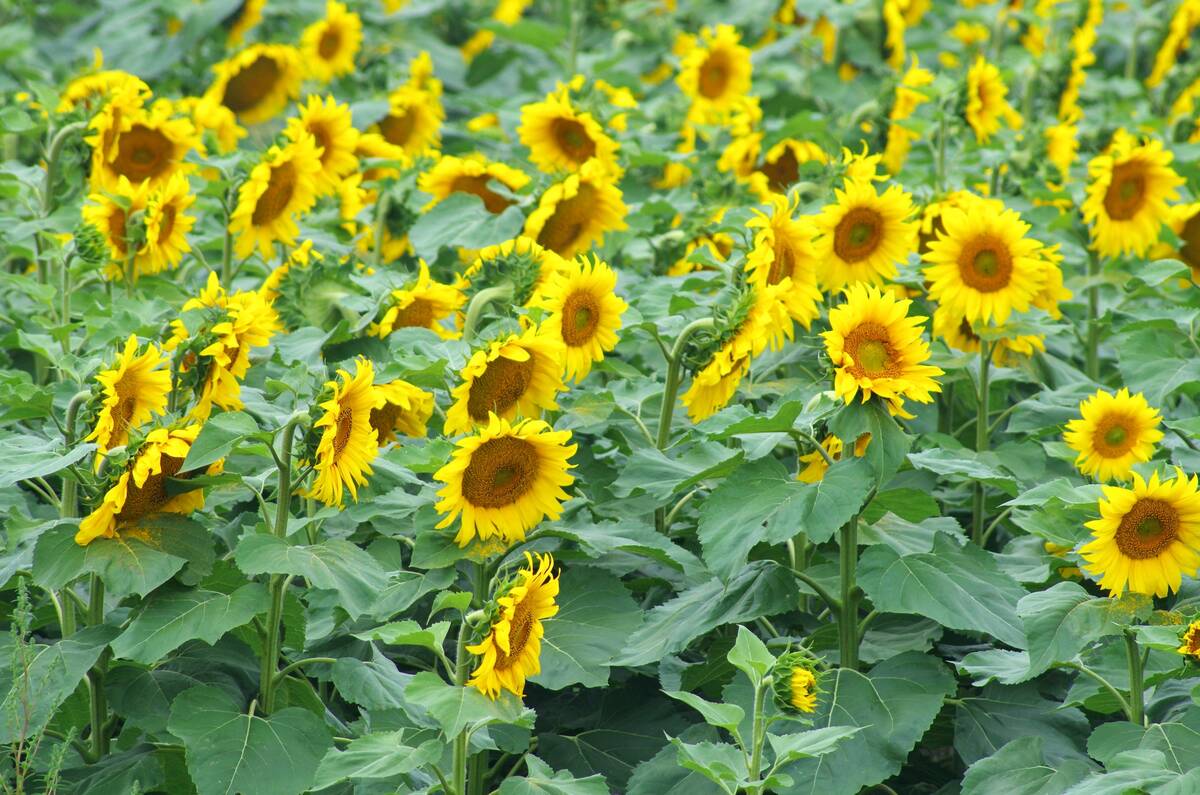Two years ago when he was president of the Canadian Agri-Food Trade Alliance, southern Alberta grain farmer Ted Menzies was adamant in arguing that Canada had no business being protectionist in negotiations aimed at liberalizing trade.
“We kind of slept through the last (negotiating) round and ended not accomplishing much in market access,” Menzies said at the beginning of the 2003 World Trade Organization talks in Cancun, Mexico.
“We won’t make that mistake again. We’ll be there to keep their feet to the fire and to let the world know most Canadian farmers are traders and not protectionists.”
Read Also

Made-in-Manitoba sunflower hybrid heads to market
Glacier FarmMedia – Manitoba’s confection sunflower growers will have a new seed option next spring that was developed specifically to…
It was a shot at the Canadian Federation of Agriculture and its attempt to be the face of Canadian agriculture at trade talks. The CFA wants to balance export interests with a stout defence of supply management protections.
Now, as the newly appointed international trade critic for the Conservative party, Menzies is singing a different tune. As part of an effort to appeal to the rural interests of Ontario and Quebec, the party has embraced supply management as a successful Canadian farm policy that should be preserved.
The Alberta MP said in a May 26 interview he will have no problem defending the Conservative position, including supply management.
“I played a different role at CAFTA, representing a strictly trade oriented sector,” said the former grains and oilseeds producer from Claresholm.
“Now, I represent a broader perspective. I believe supply management must be defended. It is working. Life is a learning curve and I have a greater appreciation of the whole industry.”
Menzies, a rookie MP who was his party’s critic on international development issues, was elevated to the role of senior trade critic May 25 after the defection of former Conservative trade critic Belinda Stronach to the Liberal cabinet on the eve of a crucial vote in the House of Commons May 19.
Menzies said his trade critic assignment is a dream job.
“I’m excited about this because trade has been a passion of mine for many years,” he said. “It’s a bit of a coming home. I think as a critic I’ll be able to help the government strengthen its position.”
Most Canada-United States trade disputes involve agriculture, including closed borders to cattle trade, American challenges to hog and wheat exports and in the past, potatoes.
“We need a dispute settlement mechanism with teeth.”
The MP said he will work with trade minister Jim Peterson, but he questioned whether the Toronto Liberal MP has presented a strong enough case for Canadian interests in trade discussions.
Meanwhile, Menzies’ former colleagues at CAFTA complain that the Conservatives, like the Liberals, are too afraid of losing dairy industry votes to stand up for a strong market access position that promises to break down all trade barriers including Canada’s high tariff protections for dairy, poultry and egg industries.
Menzies said he recognizes that Canadian trade policy must reflect the fact that most farm sectors depend on trade for their livelihood: “That has to be at the centre of our trade policy.”
But he also recognizes that the supply managed sectors believe a cut in over-quota tariffs would damage their multibillion-dollar industries. Those tariffs protect them against cheap imports that would disrupt production controls and fixed prices.
“Trade deals should not deliberately hurt sectors that are successful,” said Menzies. “We have to represent the whole industry when we take positions.”














